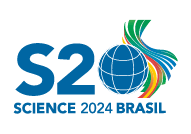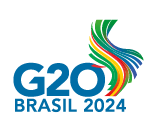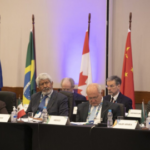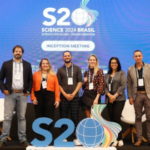Brazil returns to the game in the G20 Science and Technology meeting
Read article by Mauricio Thusohwl for Carta Capital, published on March 15:
After a first year of government marked by efforts to resume public policies in science and revitalize the main funding mechanisms for the sector, the Brazilian scientific community aims to take advantage of its presidency of the G20 in 2024 to regain lost ground in an increasingly competitive global market.
As the host of the eighth edition of the Science20 (S20), a forum that brings together the science academies of the bloc’s member countries, the Brazilian Academy of Sciences (ABC) followed the strategy of repositioning Brazil in a leadership role in the sector and urged urgency in fulfilling commitments made nine years ago under the UN’s 2030 Agenda, which includes measures to reduce inequality and poverty and protect the environment, among others.
Concluded on Tuesday, March 12, in Rio de Janeiro, the S20 Initiation Meeting – the summit meeting will take place in July – had five axes of discussion: Bioeconomy, Artificial Intelligence, Energy Transition, Social Justice, and Health. The debates and activities were coordinated [by ABC director Álvaro Prata, in conjunction with ABC President Helena Nader]. Participating in the meeting were science academies from South Africa, Germany, Saudi Arabia, Argentina, Australia, Canada, China, South Korea, the United States, France, Japan, India, Indonesia, Italy, Mexico, the United Kingdom, Russia, and Turkey, as well as the European Academy.

Marcos Cortesão, ABC’s Executive Secretary for International Programs; Glaucius Oliva, ABC’s Vice President for the São Paulo region; and Álvaro Prata, ABC’s Director tasked by the president to conduct the S20 meeting | Photo: Marcos André Pinto/ABC
“For the first time, multinational scientific organizations were invited to participate in the S20 discussion process, which included representatives from entities such as the InterAcademy Partnership (IAP), International Science Council (ISC), European Academies Science Advisory Council (EASAC), and the World Academy of Sciences for the Advancement of Science in Developing Countries (TWAS).”
“Only six years remain until the final deadline set by the 2030 Agenda, and there is much concern that we are still far from the agreed targets in the United Nations Sustainable Development Goals,” says Nader. During the S20, the president of the ABC emphasized the need for discussions to “always consider the societal impacts” and highlighted the importance of advancing scientific discussions on demographic differences between countries: “Awareness of demographic aspects is fundamental for G20 countries to make informed decisions that shape the well-being of their citizens, drive economic prosperity, and contribute to global sustainable development.”
Minister of Science, Technology, and Innovation, Luciana Santos, emphasized the need for international cooperation to combat scientific and technological inequality between the rich and the poor. Santos cited a UN report indicating that countries in Latin America, the Caribbean, and Sub-Saharan Africa are less prepared to adopt or adapt cutting-edge technologies, and they also risk missing out on current technological opportunities for transitioning to a low-carbon world, such as bioeconomy or artificial intelligence: “The accelerated evolution of AI systems has sparked intense debates, especially focused on generative models, their risks, and benefits. However, these debates often overlook the concentration of capabilities, databases, and computational infrastructure in a few countries and companies, factors that, when combined, pose a threat that developing countries will not reap the benefits of this technological revolution,” she said.
Since 2017, S20 debates have been held annually, always coordinated by the country presiding over the group, and its recommendations are officially presented for consideration at the Summit Meeting of the Heads of State and Government of the G20. Previous meetings took place in Germany (2017), Argentina (2018), Japan (2019), Saudi Arabia (2020), Italy (2021), Indonesia (2022), and India (2023). Helena Nader says that the Brazilian scientific community is proud to see the country back on the global scene.
“We are seeking to work multilaterally with countries to build solutions for global problems, especially after a turbulent period in which Brazil faced, alongside the pandemic, speeches of distrust in science and vaccines, as well as threats to our young democracy, which was reestablished in 1985.”
